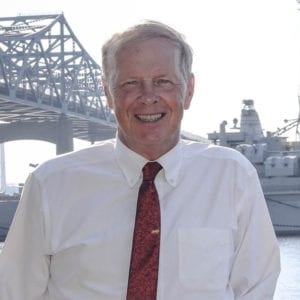Who is a member?
Our members are the local governments of Massachusetts and their elected and appointed leadership.

Fall River Mayor Paul Coogan
To connect homeless residents with resources, the city of Fall River has been sending outreach workers onto the streets, giving people more personal service and bringing greater stability to their lives.
The city started a pilot homelessness program this past fall, assigning two full-time employees to help give homeless clients access to shelter, addiction help, mental health services and other resources. The city opened a new permanent overflow shelter in December, as part of its expanded services.
“Instead of going out and providing services to the homeless at their location, we wanted to bring the homeless into the programs, into the services,” said Michael Dion, the city’s executive director for community development. “Before, we would go out to the homeless, we would give them a tent, we would give them sandwiches, give them toothpaste, a toothbrush — but you’re kind of enabling the homelessness to stay the way it is.”
Outreach worker Niki Fontaine said that most of her homeless clients have addiction or mental health issues, or both. As a recovering addict who was once homeless, Fontaine relates to their struggles.
“I totally can understand the full trauma that they’re going through and experiencing as they’re homeless,” Fontaine said. “So I think that helps to build a lot of trust, that I’m not someone who has never experienced it, doesn’t know what they’re talking about. … I’ve lived it, so that really helps break down some barriers.”
Fontaine gets people into shelters, arranges for medical care and mental health services, sets people up with recovery coaches, and takes them to detox centers and other facilities to get clean. She goes on police ride-alongs, reviews 911 reports to identify people who need help, and talks to people brought into the booking room. And she gets to know people’s relatives to help improve family dynamics.
Since October, Fontaine said she has helped between 160 and 170 people, with a mixture of heartbreak and success. One couple stayed sober for a couple of months before relapsing, she said, and others have died after using drugs for the first time in years. But she also managed to get medical help and a shelter bed for someone on Christmas Eve, she said. Recently, she received a wedding invitation from a woman she helped to get sober.
“You’re not going to save them all, but you just keep trying,” Fontaine said. “But I do know that this program — I believe it in my heart — that this is successful and we’re on the right track, because I know I’m making a difference.”
To pay for the work, Dion said, the city’s Community Development Agency is using Coronavirus Relief Funds from the federal CARES Act. He estimates that the program will cost the city between $150,000 and $200,000 through September 2022, the CARES Act funding period. Beyond that point, the city will seek other funding sources, such as Community Development Block Grants, to continue the program, he said.
“You can really see a big difference in what’s happening out there,” Dion said of the program. “I mean, the Police Department is really happy, and I think a lot of pressure’s been taken off of them.”
As communities nationwide debate the role of police in solving social problems, Mayor Paul Coogan said this outreach program helps to de-escalate situations that can be handled differently.
“I think this is an excellent example of how this should work, because … not everyone who’s down on their luck is a criminal,” Coogan said. “If someone needs help, let’s help them.”